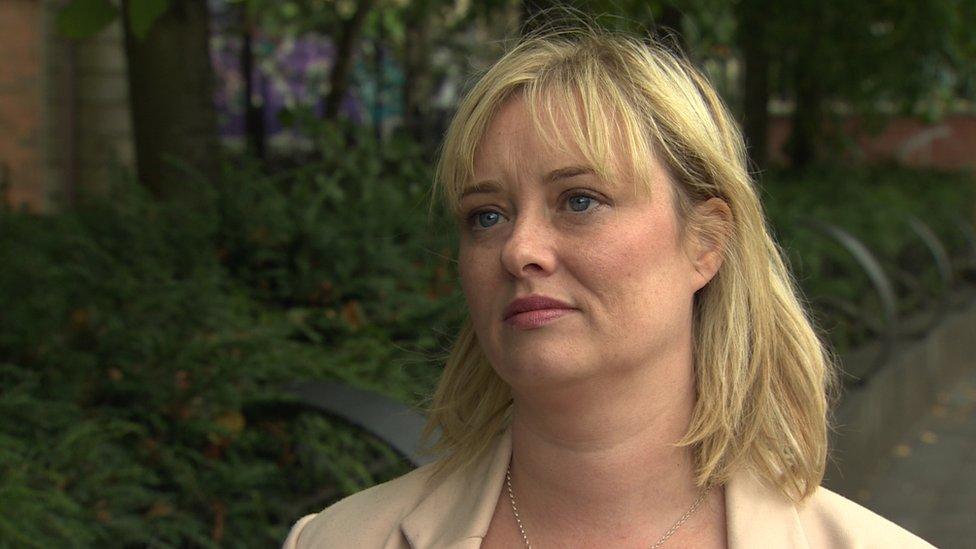Alan Rusbridger: Ex-Guardian editor resigns Irish role over Roy Greenslade row
- Published
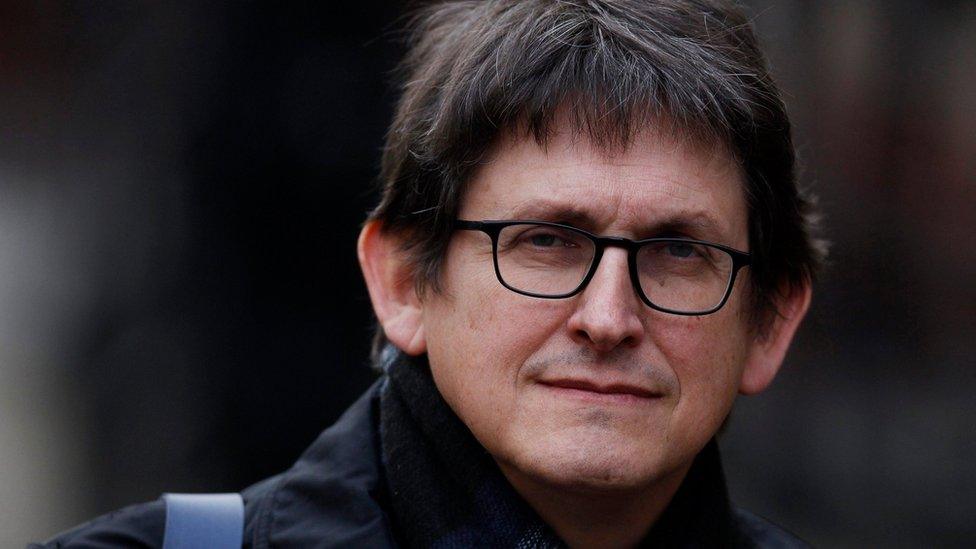
Alan Rusbridger was the editor of The Guardian from 1995 to 2015
The former editor of The Guardian newspaper has resigned from a commission set up to examine the future of the media in Ireland.
Alan Rusbridger had faced calls to be removed after it emerged that his former media editor, Roy Greenslade, was supportive of the IRA.
Máiría Cahill, who told the BBC in 2014 she was raped by an IRA member, had called for the taoiseach (Irish PM) to consider his position on the panel.
The government decided he should stay.
That decision was backed unanimously by fellow members of the Future of Media Commission earlier this week.
However, on Sunday, Mr Rusbridger said that he stepped down to avoid his involvement being a "distraction" to the "critical" work of the commission.
He said he had been pleased to be invited and the "unanimous support" of his colleagues had been important to him.
On Sunday, Taoiseach Micheál Martin and Media Minister Catherine Martin acknowledged the decision and thanked him for his "significant contribution to date".
The Guardian apologised to Máiría Cahill over an article written about her by Mr Greenslade. earlier this month.
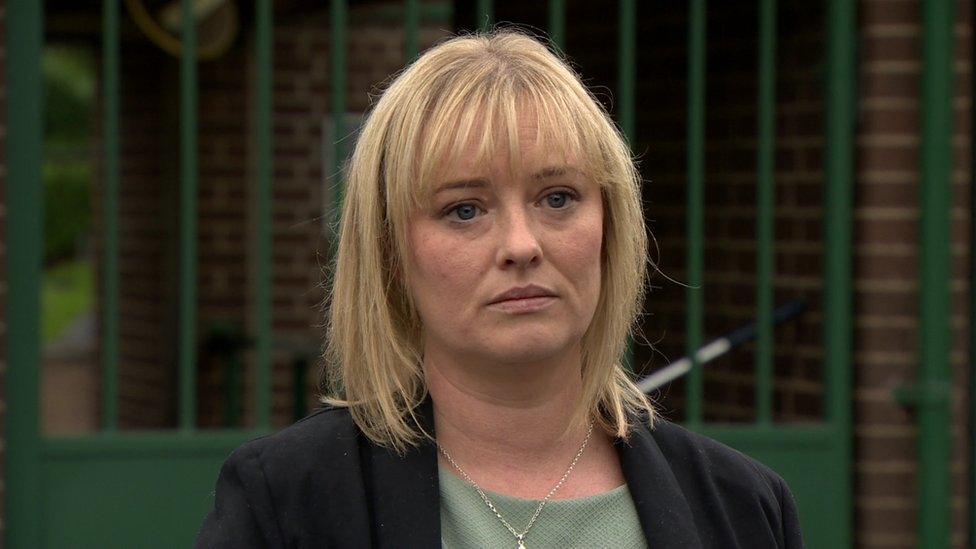
Máiría Cahill described Mr Greenslade's article about her in The Guardian as "vile"
After a BBC Spotlight programme on her allegations in 2014, Mr Greenslade wrote a column in The Guardian which said that Spotlight "were too willing to accept Cahill's story and did not point to countervailing evidence".
Mr Greenslade wrote: "This lack of balance resulted in the Cahill story being accepted at face value across Ireland, where [Gerry] Adams and his party were forced on to the back foot as they tried to defend and explain the IRA's actions."
Ms Cahill received an apology from the PSNI in 2018 after a report found she had been failed by them over her claim.
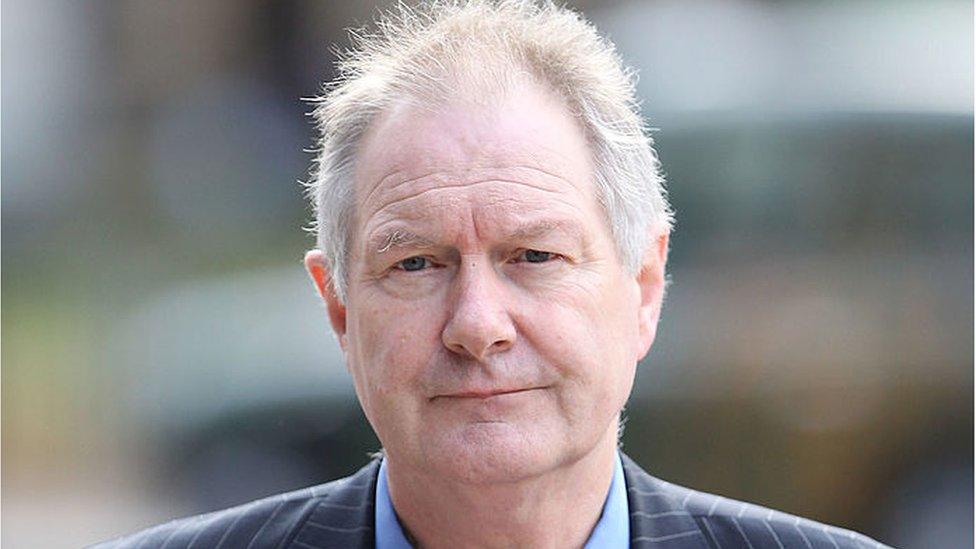
Roy Greenslade is a former editor of the Daily Mirror and was a media commentator for The Guardian
Mr Greenslade, a former editor of the Daily Mirror, wrote in the British Journalism Review, external at the end of February that he backed the IRA's armed campaign while he was working as a journalist during the Troubles.
He also said he had made contributions to the republican newspaper An Phoblacht during the Troubles under the pseudonym George King.
Ms Cahill then complained to The Guardian that its 2014 article by Mr Greenslade was a "propaganda piece against a rape victim".
The Guardian confirmed on Friday evening that its current editor-in-chief, who was not in the role at the time the article was published, had sent a private apology on its behalf to Ms Cahill.
Katharine Viner, who took up her post in 2015, acknowledged that the column "was not handled appropriately".
The Guardian has begun a review into articles about NI written by the ex-Daily Mirror editor and The Guardian commentator, after the complaint by Ms Cahill.
A note has been added to the 2014 piece which reads: "The lack of disclosure was especially unfair to a vulnerable individual, and The Guardian has now apologised to Ms Cahill."
'Sincerely sorry to Máiría Cahill'
Writing in The Guardian, Mr Rusbridger also apologised to Ms Cahill.
He wrote: "Given what he has now shared, I believe he should have avoided those topics - or, at the very least, have been consistent in letting readers know more about where he was coming from - especially as The Guardian's own guidelines have long been explicit about declaring interests.
"In particular, Greenslade had criticised transparency in a 2014 piece about a BBC programme on Mairia Cahill's claim of rape by an alleged IRA member. Given his own lack of transparency, that was, at best, hypocritical.
"The piece spectacularly fails on transparency grounds. Had Greenslade been open with me back in 2014, I would have been able to come to a different judgement about it overall.
"So I am sincerely sorry to Máiría Cahill, both for the article and for the upset it must have caused her."
Related topics
- Published14 September 2018
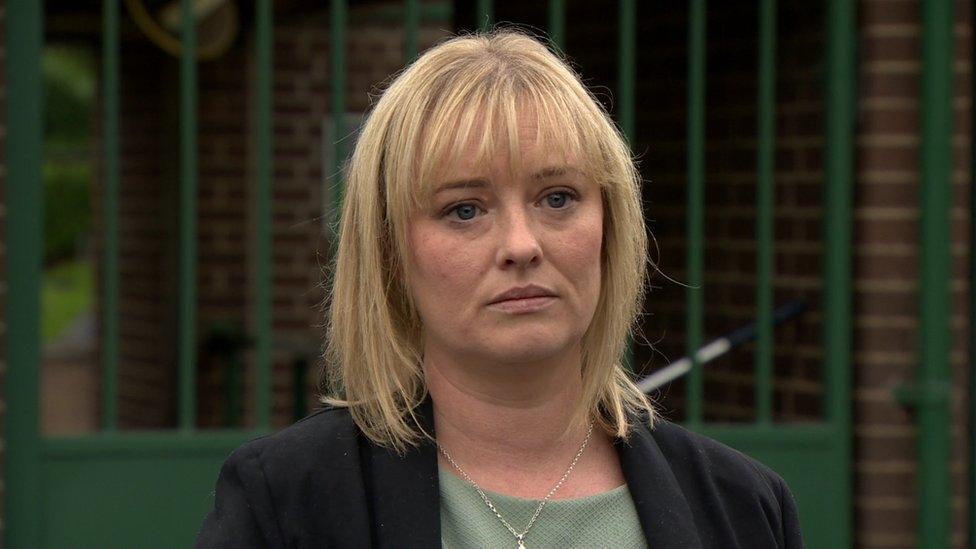
- Published13 September 2018
